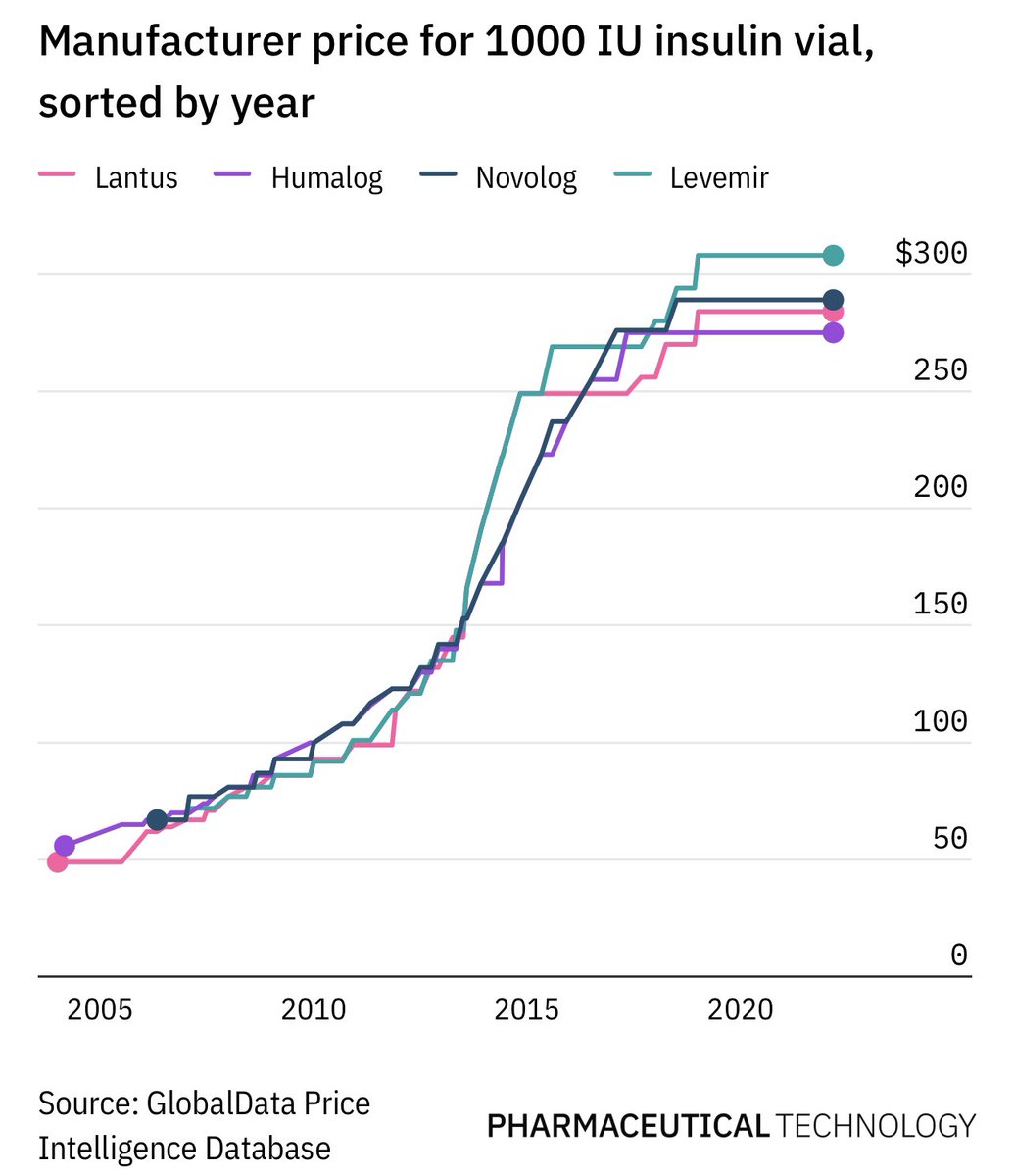
This is not price increase for a newer more fancy and luxurious car over time. It's price increases of exact same insulin over time in the US. #Insulin4all pharmaceutical-technology.com/analysis/insul… 

This is not a more fancy insulin in the US. It's the same kind of insulin that's sold in other countries for much less, even by the same companies. @TheEconomist 

If you want to know how on earth is this possible please watch my presentation here.
This kind of price increases are not unique to insulins.
https://twitter.com/VincentRK/status/1552638163717394432
It is why Medicare should be able to negotiate prescription drug prices and also be able to cap price increases to prevent hardships for patients and citizens.
https://twitter.com/vincentrk/status/1550889353970417664
I'm grateful that @AARP and @P4AD_ are supporting the effort to allow Medicare to negotiate. It's not easy to overcome the lobbying power of Pharma.
Thanks @policydeb @AARP and @DavidP4AD @P4AD_
Thanks @policydeb @AARP and @DavidP4AD @P4AD_
The high cost insulin and it's consequences will be featured in @PayorDieFilm
Stay tuned.
@SarahKSilverman payordiefilm.com
Stay tuned.
@SarahKSilverman payordiefilm.com
• • •
Missing some Tweet in this thread? You can try to
force a refresh






